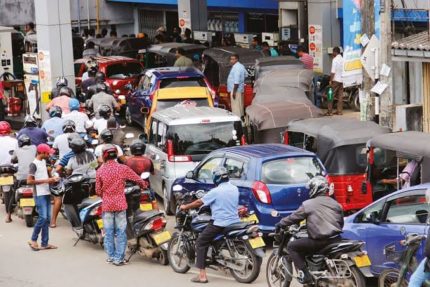The Independent Petroleum Marketers Association of Nigeria (IPMAN) Mosimi Depot, Ogun State, has urgently called on the Nigerian National Petroleum Corporation Limited (NNPCL) to release petroleum products worth N75.142 billion that have been paid for since June 2024. This delay in the supply of fuel has significantly contributed to the ongoing fuel scarcity in the South West region, creating severe hardship for citizens and putting the businesses of IPMAN members at risk.
According to IPMAN, the refusal of NNPCL to deliver the petroleum products has been a major cause of the current fuel scarcity, which has exacerbated the economic difficulties faced by Nigerians. IPMAN is now appealing to the federal government and other key stakeholders in the oil industry to intervene, ensuring that NNPCL fulfills its obligations. The association emphasized that a prompt supply of the paid-for petroleum products would help alleviate the fuel shortage and ease the burden on the populace.
NNPCL Accused of Prioritizing Major Marketers Over IPMAN Members
Otunba Femi Adelaja, the Chairman of IPMAN Mosimi Depot, expressed deep concern over the NNPCL’s apparent preferential treatment towards major petroleum marketers. He revealed that despite making a substantial deposit of N75.142 billion for fuel supplies through the Lagos Private Depot Owners (PDO) three months ago, IPMAN members have yet to receive any products from NNPCL. This situation has left many independent marketers struggling to sustain their businesses, most of which rely on bank loans that incur significant interest.
Adelaja accused the NNPCL of deliberately withholding supplies from IPMAN members to benefit major marketers like Total, Oando, and Ardova. According to him, these companies have been receiving products intended for IPMAN members and are reselling them at higher prices, further straining the supply chain. Adelaja lamented the unfair treatment, noting that while major marketers continue to profit, independent marketers are left with mounting debts and an uncertain future.
IPMAN Seeks Public and Government Intervention
In light of the ongoing crisis, IPMAN Mosimi Depot is calling on all well-meaning Nigerians to support their appeal to the NNPCL. The association fears that if the current situation persists, many of its members will be forced out of business, leading to further economic instability and worsening the fuel scarcity. IPMAN also urged the federal government to step in and ensure that the NNPCL honors its commitments, thereby restoring a stable supply of petroleum products to the South West region.
Adelaja highlighted the urgency of the situation, warning that continued delays could have catastrophic consequences for both independent marketers and the Nigerian economy at large. He stressed that without immediate action, the NNPCL’s practices could drive many IPMAN members into bankruptcy, leading to widespread job losses and further fuel price hikes.
Public Reactions to IPMAN’s Call Amid Fuel Scarcity Intensify on Social Media
The recent call by the Independent Petroleum Marketers Association of Nigeria (IPMAN) for the Nigerian National Petroleum Corporation Limited (NNPCL) to release withheld petroleum products has sparked significant reactions across social media platforms. Amidst the ongoing fuel scarcity in the country, many Nigerians have taken to social media to express their frustrations and critique the NNPCL’s handling of the situation.
One notable response came from a user, Osbmoj, who argued that the root of the problem lies with corrupt individuals within the NNPCL. He claimed that these individuals prioritize selling fuel to private depots before making it available to marketers, thereby exacerbating the scarcity. Osbmoj further suggested that this practice is part of a broader strategy to reduce subsidies, describing it as a shameful act. His comments resonated with many who believe that internal corruption is a significant factor contributing to the ongoing crisis.
Another user, Ahmad, echoed these sentiments, labeling the fuel scarcity as an “artificially induced” crisis. He criticized the NNPCL’s policies, suggesting that the scarcity is a result of poor decision-making that is causing widespread hardship across the country. These voices on social media reflect a growing discontent with how the fuel distribution issues are being managed, with many calling for immediate reforms within the NNPCL.
Calls for Functional Refineries and Long-Term Solutions Gain Momentum
As the fuel scarcity continues to affect daily life in Nigeria, some social media users are emphasizing the need for long-term solutions, particularly the revitalization of the country’s refineries. Arakunrin Olabisi, another vocal user, highlighted the dependency on foreign refineries as a critical issue, arguing that this reliance on imported fuel leaves Nigeria vulnerable to external problems. He expressed a desire for a future where African nations are not negatively impacted by issues in other continents, but instead, have the economic power to influence global markets.
Olabisi’s comments sparked a broader conversation about the importance of having functional refineries within Nigeria. He pointed out that the current fuel scarcity underscores the urgent need to repair and operationalize the country’s refineries, a sentiment that many Nigerians seem to share. For those advocating for functional refineries, this crisis serves as a stark reminder of the dangers of over-reliance on imported fuel and the need for self-sufficiency in energy production.
In response to the growing public outcry, the NNPCL has stated that it is actively working with stakeholders to address the distribution challenges that have led to the current fuel scarcity. However, many Nigerians remain skeptical, urging the corporation to take more decisive action to resolve the crisis and prevent future occurrences. The ongoing discussions on social media reveal a population that is not only frustrated by the current situation but also eager for meaningful and sustainable changes in the nation’s energy sector.
Table of Contents
Discover more from OGM News NG
Subscribe to get the latest posts sent to your email.














